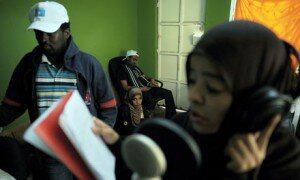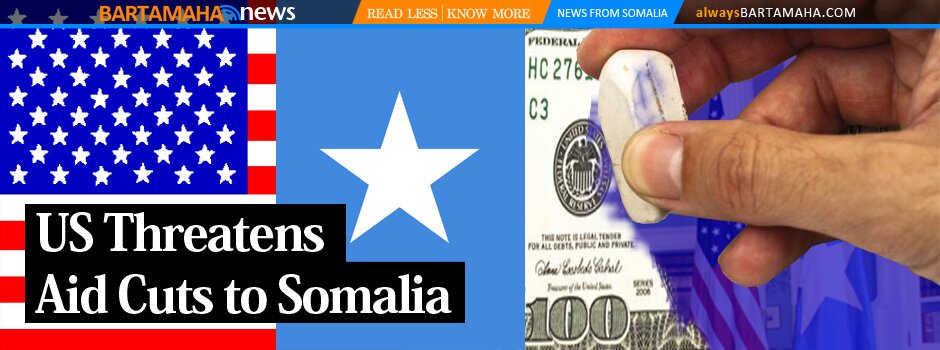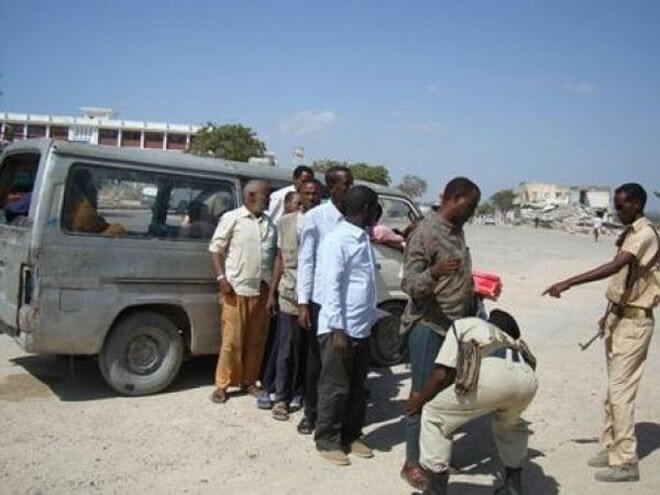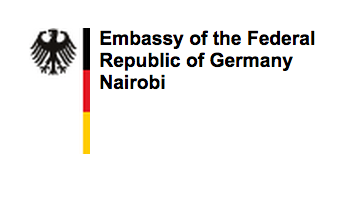Somali hip-hop band fighting al-Shabaab for hearts and minds
 Shine Ali doesn’t scare easily. If he did, he would not be with his band in a basement studio in Nairobi, rapping lyrics that challenge the Islamist rebels who control much of his homeland, Somalia – and whose reach extends deep into the Kenyan capital.
Shine Ali doesn’t scare easily. If he did, he would not be with his band in a basement studio in Nairobi, rapping lyrics that challenge the Islamist rebels who control much of his homeland, Somalia – and whose reach extends deep into the Kenyan capital.
Ali is well aware of the risks he is running. Three years ago, members of the al-Shabaab group broke into his home in Nairobi’s Eastleigh neighbourhood and shot him.
“They said, ‘Your message is anti-jihad. You are telling the youth to give up jihad,’” the 29-year-old says in halting English. Ali edges down his baggy checked shorts, pulls up his hooded sweatshirt and shows a scar on his right hip. He has another one on his left arm.
“When they shot me, I knew that if I stopped the music, they would win but if I continued, my power would win.”
Ali is a founding member of Waayaha Cusub, an 11-member hip-hopgroup that includes Somalis, Kenyans, an Ethiopian and a Ugandan.
The band is, in its composition, a defiant challenge to the al-Qaida-linked rebels of al-Shabaab and to the thorny political realities of the Horn ofAfrica.
He started Waayaha Cusub, which can be translated as New Era or New Dawn, in 2004. They have produced several albums since then as well as making waves with the 2010 song No to al-Shabaab.
Al-Shabaab, which means “youth” in Arabic, controls much of south and central Somalia where its fighters enforce a harsh form of sharia law: they carry out beheadings and cross-amputations and in some areas have banned musical ringtones on mobile phones, as well outlawing films and football.
Waayaha Cusub’s songs are recorded in Nairobi but find their way home on pirated CDs, and through the radio and internet. As well as calling for peace and condemning al-Shabaab, the band deal with traditionally taboo subjects such as Aids and clan rivalries.
Ali and his group have angered conservatives with their lyrics and because their videos show women dressed in trousers and dancing.
One of their female singers was slashed across the face in Nairobi a few years ago and is still in hiding. In the concrete-floored studio lined with the bottoms of cardboard egg boxes, Ali and fellow singers in the band, Lixle Dikriyow and Burhan Ahmed, belt out lyrics from a new song about piracy. Two women, wearing headscarves and long skirts, sit silently in a corner. They will join in later.
Other members of the band were too afraid to come to the rehearsal.
Fear is a constant companion for Kenya’s Somali community these days, caught between an increasingly hostile host population and al-Shabaab.
After Kenyan soldiers crossed the border in October to push al-Shabaab back, the rebel group threatened to hit back. This has turned every Somali into a suspect in some Kenyans’ eyes, despite the fact that the only attacks in Nairobi since the incursion were carried out by a Kenyan who said he was a member of al-Shabaab.
Ali, who was born in central Somalia, came to Nairobi when he was a child, joining hundreds of thousands of people fleeing decades of violence that started when warlords overthrew President Mohamed Siad Barre after more than 21 years in power.
But the Kenyan capital is no longer the haven it once was.
“Nairobi or Mogadishu: it is the same now,” Ali says. Al-Shabaab are present in Eastleigh, which is known as “Little Mogadishu”.
The rapper is also worried about how Kenyans will react if their forces take heavy losses on the battlefield. He knows what he does is risky but says that the only way to fight the Islamist group is by raising awareness among the Somali youth.
He taps his head to make his point. “Awareness,” he says. “These youth have bad ideology. If we give them good ideology, talk to them about life, marriage, children … If we show them these things, we can stop them.
“You cannot fight someone who wants to die, you can only save them.”
Asked if he wants to perform in the Somali capital, Mogadishu, Ali pounds the table and says: “Yeah.”
Mogadishu has enjoyed some respite from violence since al-Shabaab fighters pulled out in August and African Union peacekeepers extended their control across the crumbling seaside city. But there are still suicide attacks, roadside bombs and sporadic gunfights.
That is not the problem, though, for Ali and Waayaha Cusub. “If I get support, I will go to Mogadishu,” he says. “It’s a good time for us because we need to tell our youth that al-Shabaab is not good, we need to tell them to support their government.”
Comments
comments
 Calendar
Calendar






































